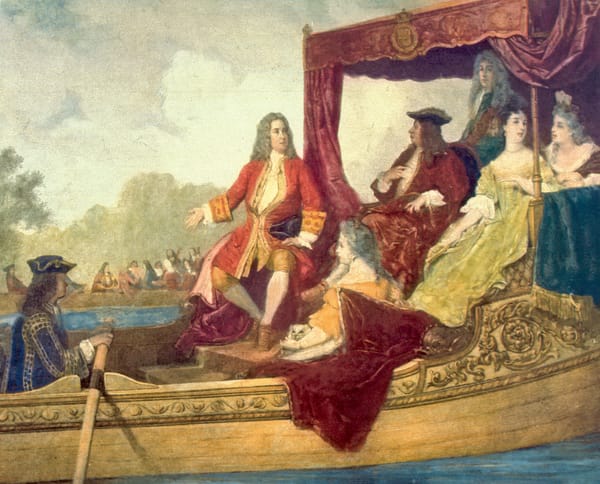Fabulous Fifteen
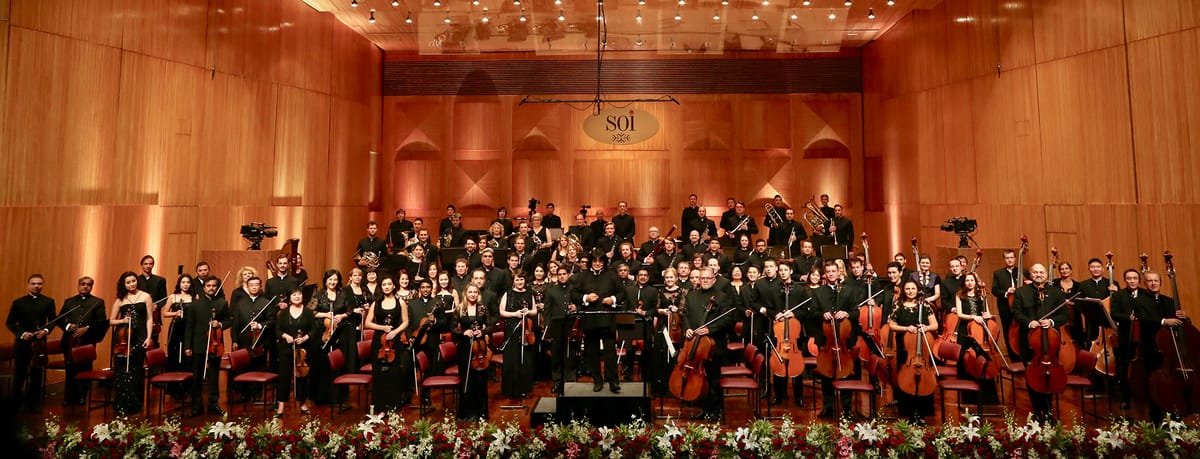
India’s first and only professional orchestra, founded at the NCPA, has turned 15. From performing challenging repertoire and playing with the legends of classical music to touring internationally with great success, the SOI has gone from strength to strength. We bring you memories, and messages from the pillars of the orchestra, the behind-the-scenes team and conductors under whose baton the SOI has performed.
Mr. Khushroo N. Suntook
Chairman, NCPA and Co-founder, Symphony Orchestra of India
Many years ago in London, strolling down Piccadilly, we went back stage at a concert and heard Marat Bisengaliev and his merry band of young violinists play brilliantly. We invited the orchestra to India and much to my delight, when Dr Jamshed Bhabha heard them, he immediately approved, not only their playing, but also remarked that they presented themselves well.
The first performance was Tchaikovsky’s Nutcracker and we had gathered a lot of musicians from all over the world to play with our newly formed orchestra. The conductor, who shall remain unnamed, apparently did not please Marat and after much had transpired, a great conductor from the Bolshoi Theatre was brought in. He put everything in order and the performance went off fairly well. There were a few shenanigans which will remain unreported, however, I wondered how we would manage if the first season went off so dramatically. Thereafter, things cooled down and season after season, it was a triumph. We had wonderful artistes who were surprisingly happy to encounter a fine orchestra in India.
For the sake of new members, we are happy to append a list of the concerts held by the orchestra over the last 15 years and I hope people would realise the quality that we mentioned. The SOI has gone from strength to strength, with visits to Oman, Switzerland, the UK, Abu Dhabi as well as a sparkling debut at the Kremlin with Beethoven being a gradual feature in the growth of these fine musicians.
The creation of an orchestra with fine international musicians, supported by a growing number of Indian players, was sort of a dream come true and gradually, the strength of the Indian musicians increased. The SOI is now a hub of good Indian players and I hope will be a happy hunting ground for players seeking an international reputation.
Our team of dedicated musicians, who make up this orchestra, is unbelievable, and many conductors/soloists have commented on the fine playing they encountered while giving concerts with them.
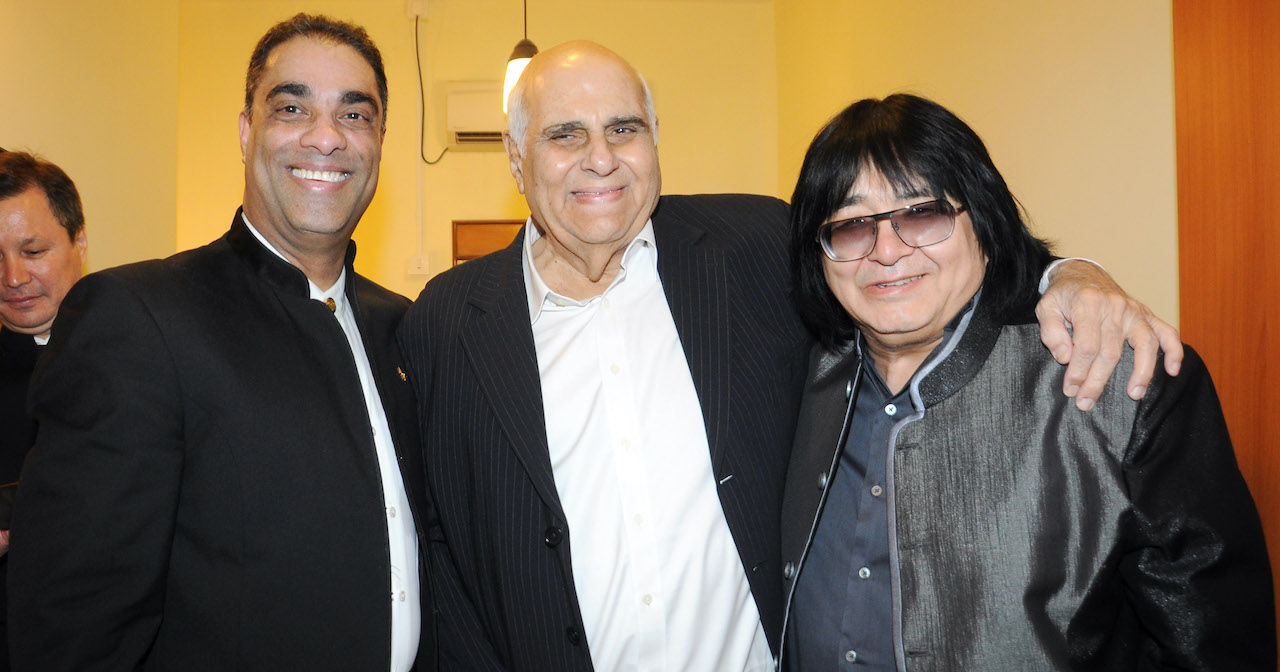
Marat Bisengaliev
Music Director and Co-founder, SOI
Fifteen years is a significant milestone and I am happy that the orchestra is going in the right direction. I am also happy that I have Khushroo, my comrade-in-arms, in this endeavour. From the SOI management, Farrahnaz Irani, Xerxes Unvala and Onay Zhumabayeva, technical head, Nayan Kale, to stage manager, Sakharam Gawde—they make the SOI story. And to them, I am grateful.
Over the years, though the composition of the orchestra has changed, the skeleton has remained the same. The founding members have been loyal to the SOI and have stayed on.
The repertoire choice for our seasons and other concerts involves a lot of discussion with the Chairman. I follow a multidirectional approach with the need to explore compositions of diverse periods. The other view is the need to first finish all symphonies by major composers. These are interesting, friendly discussions and we always come up with the best solution.
Having a greater presence of Indian players in the SOI is a natural process that involves scouting for talent, recruiting musicians as apprentices first and training them to see if they make the cut. We are constantly working towards it. Prayash Biswakarma, for instance, has been a great find. I have witnessed his growth from a promising boy who was part of a youth orchestra to an established team player in the SOI.
The SOI now has the music academy and like the orchestra itself, it is the only one of its kind in India, offering the Russian method of teaching. Our graduates are not only potential players in the orchestra for the future but also musicians professionally trained in Western classical music who are valuable to India.
The orchestra has gone from strength to strength and survived these difficult times while streaming performances online and recording programmes. It is to the NCPA’s credit that all musicians have been paid their salaries throughout the lockdown. These two years have proved the NCPA’s and Khushroo’s love for the orchestra.
Zane Dalal
Associate Music Director, SOI
After almost 15 years at the SOI, I personally can look back with some pride and pleasure. Not only to speak a little of our journey and my perspectives on it, but to mention my personal gratitude to certain persons, without whom it is difficult to imagine our current position.
We are grateful for the perseverance through all odds of our Chairman. The SOI has not only flourished, but gone on tour, received international recognition, coproduced and performed grand operas and grown a roster of fine international soloists and conductors.
As our international travelling increases and brings us good notices, the platform on which the SOI presents itself and the reputation of the NCPA grows in strength and standing. Our international footprint is a presence on the world stage that has been carefully forged nearly single-handedly by Khushroo. It is perhaps the most important process at the NCPA. Whether organisations like the Alliance of Asia-Pacific Region Orchestras (AAPRO) or forging ties with the NCPA Beijing, or the Association of Asia Pacific Performing Arts Centres (AAPPAC) or The International Artist Managers’ Association (IAMA), or countless trips to London and Europe to expose the grand work of the NCPA—the end result is a complex and vibrant quilt woven by a single man. The benefits of these established ties will continue to be apparent for years to come.
Over the years we have not only improved the way we manage our personnel, but seek to provide an environment in which there is not only challenge and superior quality in the musical work, but joy, recognition and stability in their connection to our organisation.
In all the things that I remark upon here, our Music Director, Marat Bisengaliev has shared the same road, through ups and downs, through triumphs and despairs, through thick and thin, and yes, with a level of passion for the job and duty and loyalty to the organisation that has been a testament of his character. His extraordinary devotion and commitment to the SOI not only as its Founder Music Director and resident virtuoso but as the tireless champion of the education programmes that feed the orchestra with new home-grown talent will, I’m certain, prove to be the lasting legacy of the institution as a whole.
I recount all these things with pleasure and pride, because I have had the duty and privilege of contributing personally to all these great undertakings at the SOI. I’m convinced that we are on a trajectory of high importance, not only for the lives of Mumbaikars but also for the nation.
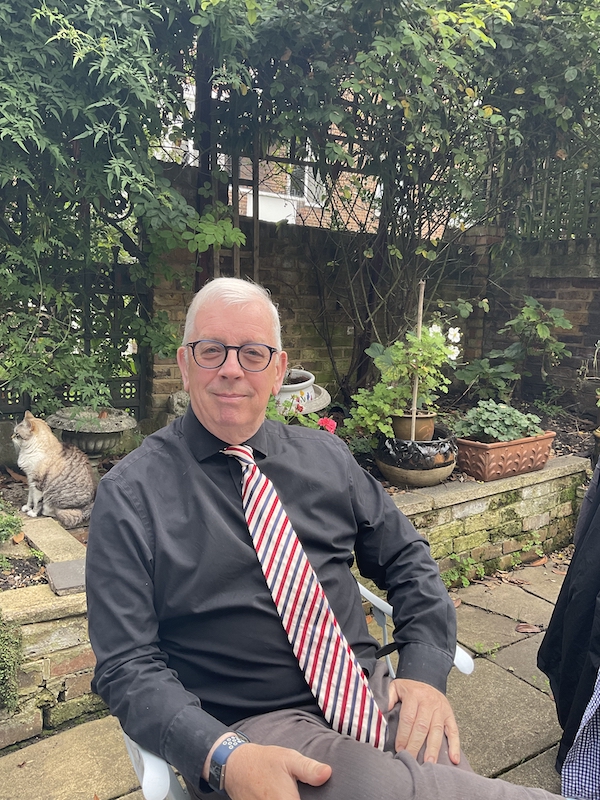
Edward Smith
Consultant to the SOI and former Chief Executive of the City of Birmingham Symphony Orchestra
The SOI was already five years old when Khushroo invited me to be involved. Having spent my career with orchestras which have been around for over a century, it was quite an adventure.
On first hearing the orchestra, I was really surprised at just how good this infant band was then. But what’s more important is how it has grown into the elite group it is now.
And that’s thanks to the selfless dedication and commitment of so many people—particularly Marat, Zane and the guiding hand of Khushroo and his colleagues.
It was no mean feat (musically, financially and logistically) to embark on tours to Switzerland and the UK in recent years and to hear them play there with such character and confidence was a great experience. To stand alongside the major international touring orchestras without any allowances for its relative inexperience and with no condescension from promoters or critics was testament to just what a treasure the orchestra is for Mumbai and India.
What’s next? What will the scene be in 2036? Well, with the continued inspiration from musical and managerial leaders and a steadily increasing number of Indian musicians acquiring the necessary skills to join the orchestra, the future can only be one of continuing development. And let’s hope that the orchestra can expand its reach to a bigger range of audiences and develop a community of Indian-born, bred and taught players who can act as ambassadors and share their enthusiasm for the wonderful fulfilment a great orchestra can bring to its community.
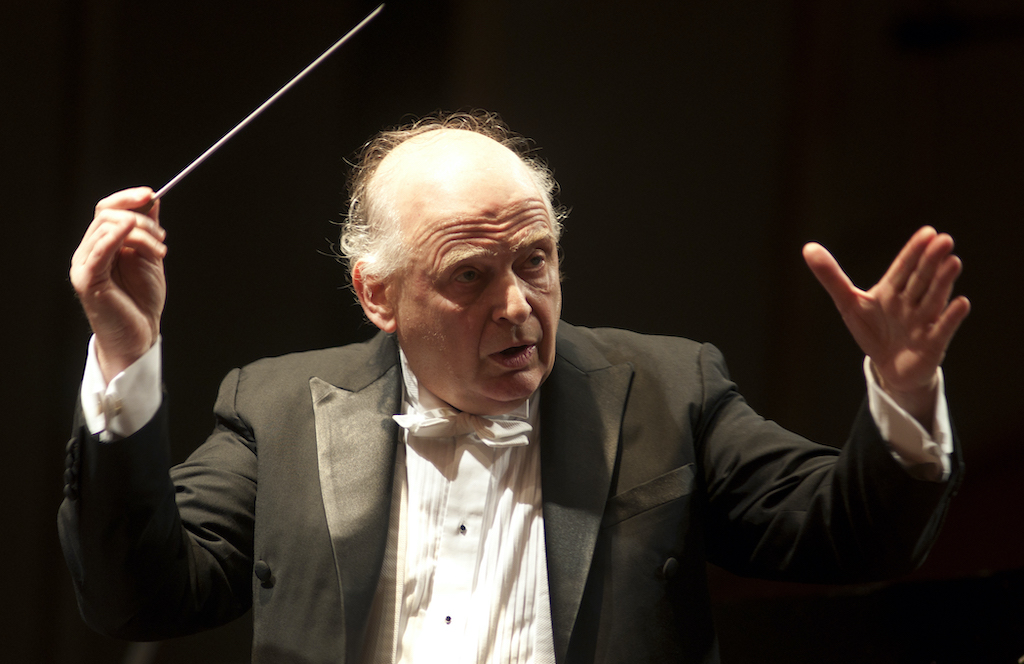
Laurent Petitgirard
Paris-based conductor and composer
I have vivid memories of my concert with the Symphony Orchestra of India, for the quality of all the musicians, for their receptivity and for the pleasant and focused working atmosphere, as our programme, between Camille Saint-Saëns and César Franck was not easy. The collaboration between my dear friend Jean-Philippe Collard and the orchestra was very rich and the organisation of our stay, perfect.
Of course, it was a very strong emotion for me to discover India and this incredible city for the first time. The memories of this concert are etched on my mind for another reason. As I came back to France, my entire conducting programme was cancelled. March 1, 2020, was my last concert and I did start again only in July 2021. For all these reasons, the Symphony Orchestra of India has a special place in my heart.
The list of concerts held by the SOI over the years can be viewed on www.soimumbai.com/archives.
This piece was originally published by the National Centre for the Performing Arts, Mumbai, in the November 2021 issue of ON Stage – their monthly arts magazine.


